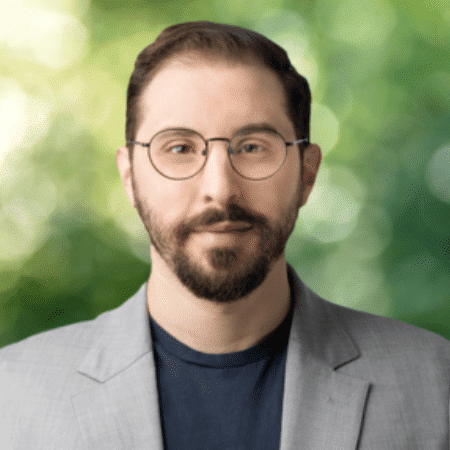It sounds counterintuitive—but treating anxiety by leaning into it may be exactly what your mind needs.
At The Midtown Practice in New York City, we specialize in a proven therapy called Exposure and Response Prevention (ERP). The goal of ERP is to help you tolerate anxiety, uncertainty, and discomfort—so you can see firsthand that you’re capable of handling it, without being overwhelmed or controlled by it.
ERP is considered the gold-standard treatment for Obsessive-Compulsive Disorder (OCD), one of the most intense anxiety disorders. Backed by decades of research, ERP has helped countless people reduce anxiety, quiet obsessive thoughts, and regain control of their lives.
Though ERP can feel challenging at first, the long-term results—freedom, confidence, and resilience—far outweigh the temporary discomfort.
What Is Exposure and Response Prevention (ERP)?
In ERP therapy, you gradually face the situations or thoughts that trigger your anxiety (the exposure) while resisting the urge to engage in avoidance or compulsive behaviors (the response prevention).
Each time you confront a fear without giving in to the instinct to escape or “fix” the feeling, you teach your brain that anxiety is tolerable—and that it doesn’t need to flood you with unhelpful ideas or behaviors to protect you. Over time, anxiety loses its power.
ERP doesn’t seek to eliminate anxiety. Instead, it helps you build a new relationship with it—one grounded in awareness, strength, and self-trust.
The 5 Core Principles of ERP Therapy
1. Habituation
Repeated exposure to feared situations teaches your brain that anxiety naturally decreases without avoidance or compulsions.
2. Cognitive Restructuring
ERP helps you challenge and reframe exaggerated or unlikely fears, showing you that your anxious thoughts don’t always reflect reality.
3. Emotional Learning
By facing your fears, your brain learns that distress is temporary and manageable.
4. Inhibitory Learning
ERP teaches that anxiety doesn’t need to be eliminated—it can be tolerated. You can act according to your values, not your fears.
5. Self-Efficacy
As you practice ERP, your confidence grows. You prove to yourself that you can face fear and move forward anyway.
What to Expect During ERP Therapy
A trained ERP therapist guides you through a structured process designed to help you safely and effectively face your fears.
Assessment & Planning
You’ll collaborate with your therapist to identify and rank your fears from least to most distressing, creating a personalized roadmap for treatment.
Gradual Exposure
You’ll begin with smaller fears, gradually working up to more challenging ones. You remain in control throughout—your therapist will always ask for your consent before each step.
Response Prevention
During exposures, you’ll learn to resist compulsive or safety behaviors that feed the anxiety cycle.
Support & Coaching
Your therapist provides encouragement, feedback, and coping strategies throughout the process.
Homework Practice
ERP continues between sessions through structured exercises that reinforce what you learn in therapy.
Temporary Discomfort
It’s normal to feel heightened anxiety at first—but with repetition and support, your brain learns that it’s safe, and your anxiety naturally decreases.
A Therapist’s Reflection: Seeing Anxiety Differently
Jared Sossin, psychotherapist and meditation teacher at The Midtown Practice, shares how ERP transformed his understanding of anxiety:
“As a meditation teacher, my instinct used to be to bring anxiety down as soon as it appeared. I saw it as something we shouldn’t have to endure for long.
Since training in ERP, I think differently. I now see anxiety as an opportunity to build resilience. When we see anxiety as the enemy, we create the enemy.
Meditation still plays a vital role in therapy, but it’s less about escaping anxiety and more about expanding awareness—to make space for it.
There is room for anxiety in a healthy, purposeful, and fulfilling life.”
Begin Your Journey Toward Anxiety Freedom
At The Midtown Practice, our therapists integrate ERP therapy, mindfulness, and meditation-based approaches to help clients overcome anxiety, OCD, and related challenges.
If you’re ready to stop fighting anxiety and start transforming it, schedule a consultation today.
Learn more about ERP therapy at The Midtown Practice →
Frequently Asked Questions About ERP Therapy
What is ERP therapy used for?
ERP is primarily used to treat Obsessive-Compulsive Disorder (OCD), but it’s also effective for other anxiety disorders, including phobias, panic disorder, and generalized anxiety.
How long does ERP therapy take?
The length of treatment varies based on your symptoms and goals. Many clients notice improvement within 8–16 sessions, though continued practice deepens results.
Is ERP therapy difficult?
ERP can feel uncomfortable at first because it involves facing fears directly. However, with the right therapist and support, most people find it empowering and transformative.
What’s the difference between ERP and traditional talk therapy?
While traditional therapy focuses on exploring feelings and thoughts, ERP is action-oriented—it involves actively confronting triggers and learning to tolerate discomfort without avoidance or compulsions.
Can ERP be combined with mindfulness or meditation?
Yes. In fact, at The Midtown Practice, we integrate mindfulness and meditation techniques into ERP to help clients increase awareness and self-compassion while they build resilience.
Is ERP therapy available online?
Yes. The Midtown Practice offers both in-person and teletherapy sessions for clients in New York and surrounding areas.



